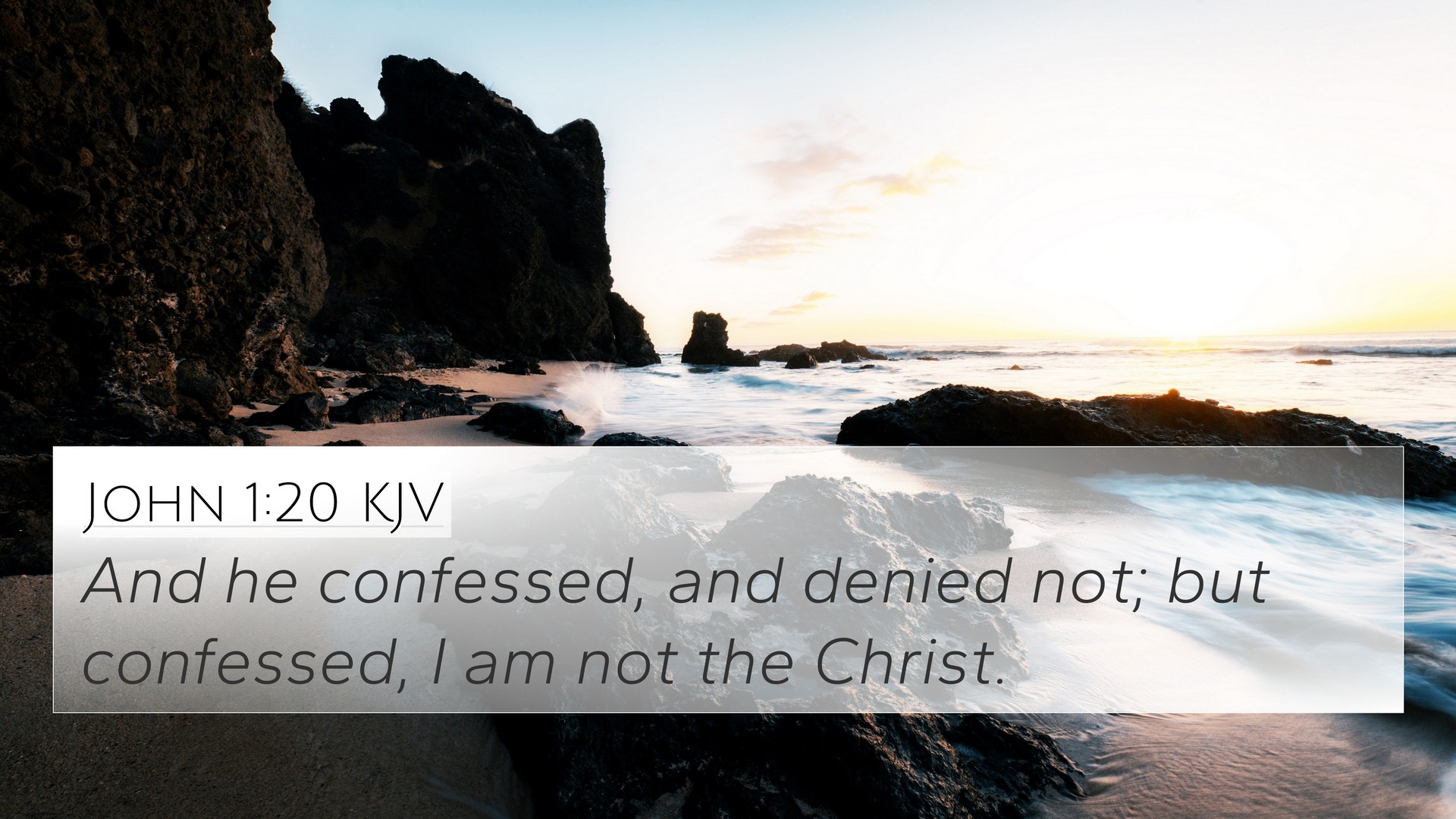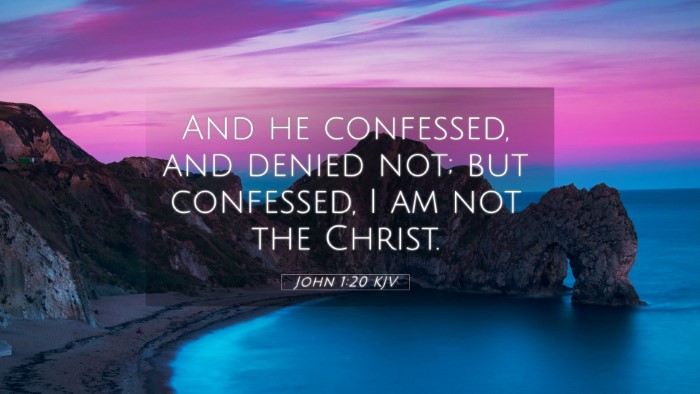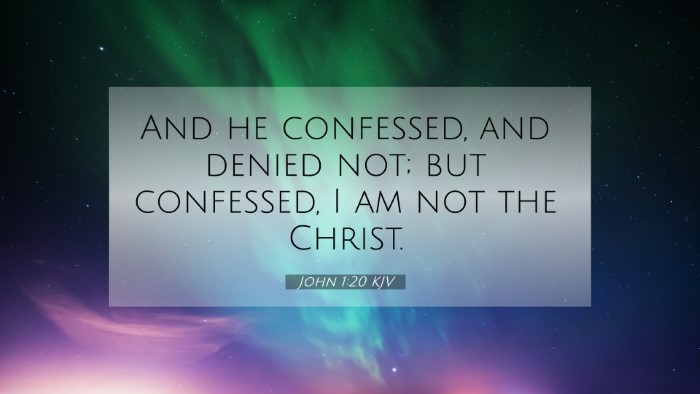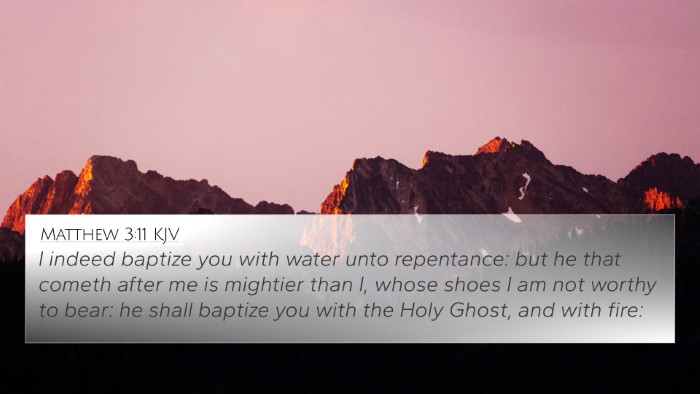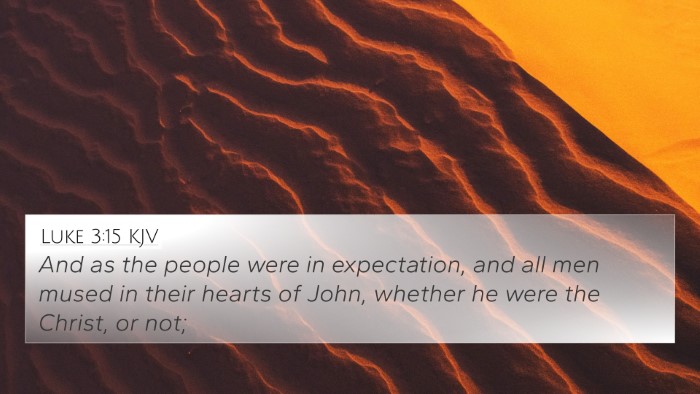Summary of John 1:20
In John 1:20, John the Baptist acknowledges his role in relation to Jesus Christ, explicitly denying that he is the Messiah. This verse emphasizes humility and the importance of understanding one's purpose in the grand narrative of God's plan for salvation.
Interpretative Insights
The verse states, "And he confessed, and denied not; but confessed, I am not the Christ." Here, John the Baptist's declaration is crucial for several reasons:
- Confession of Role: John openly admits his role as a messenger, not the Messiah. This sets a foundational understanding of who he is in the history of redemption.
- Contrast with False Messiahs: During John's ministry, many claimed to be the Christ. His clear denial reinforces the uniqueness of Jesus as the true Messiah.
- Preparation for Jesus: John's statement prepares the hearts of the people to receive the true light, emphasizing his mission to point to Jesus.
Commentary Insights
Matthew Henry: Henry emphasizes John's humility, explaining that he recognized his distinct role in God's plan without seeking personal glory. He noted that true ministry involves pointing others to Christ rather than drawing attention to oneself.
Albert Barnes: Barnes offers a view on the importance of John's ministry as a precursor to Jesus. He highlights that John’s denial of being the Christ underscores the clarity with which he directs the focus on Jesus. This act of confession shows the transparency that should characterize Christian witness.
Adam Clarke: Clarke explains that John’s role as a prophet was to prepare the way for Christ, which is solidified by his confession. He is clear on his identity, which in turn validates Jesus’ identity as the awaited Savior.
Cross-References
This verse relates to several other Biblical texts that illuminate its meaning:
- Matthew 3:11: John declares that he baptizes with water, but one is coming who will baptize with the Holy Spirit.
- Luke 3:16: John again asserts that he is not the Christ, pointing others to Jesus.
- John 3:28: John the Baptist states, "He must increase, but I must decrease," signifying the necessity of Christ’s preeminence.
- Isaiah 40:3: This prophecy, which John fulfills, speaks of a voice in the wilderness preparing the way for the Lord.
- John 1:29: John identifies Jesus as "the Lamb of God," emphasizing the significance of his mission.
- Acts 19:4: Paul notes that John baptized with the baptism of repentance, linking back to the fundamental message John preached.
- Revelation 19:10: The angel emphasizes that the testimony of Jesus is the spirit of prophecy, connecting John’s role as a prophet to the ultimate revelation of Christ.
Thematic Connections
John 1:20 contributes significantly to several themes in Scripture:
- Humility in Service: John's humility reflects the attitude that all believers should embody, pointing to Christ rather than themselves.
- The Role of a Forerunner: John's identity as the forerunner emphasizes the continuity of God’s plan through His messengers.
- Preparation for the Messiah: This theme flows throughout both the Old and New Testaments, echoing through the prophetic announcements of Jesus’ coming.
Tools for Bible Cross-Referencing
To further explore the connections between Bible verses, consider the following tools:
- Bible Concordance: Useful for finding specific words or phrases in Scripture.
- Bible Cross-Reference Guide: A resource that offers related verses on various themes and topics.
- Cross-Reference Bible Study: A method that encourages digging deeper into linked scriptures to gain a fuller understanding of Biblical truths.
- Bible Reference Resources: Books and online resources designed to help connect verses and themes across the Bible.
Concluding Thoughts
The declaration by John the Baptist in John 1:20 sets the stage for understanding the identity of Jesus Christ as the true Messiah. This pivotal verse not only illustrates humility but also invites believers to reflect on their own roles in pointing others to Christ. By utilizing cross-references and thematic connections within Scripture, one can enhance their understanding and facilitate deeper studies into the unity of God’s Word.
